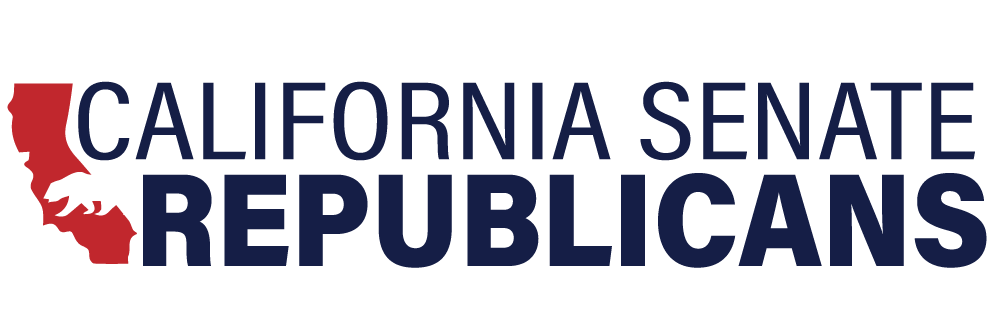Subcommittee #1 (Education)
Laird (D-Santa Cruz) Chair, Ochoa Bogh (R-Yucaipa), Min (D-Irvine) & Smallwood-Cuevas (D-Los Angeles)
Supporting Affordable Housing for College Students. The California State University’s (CSU’s) 23 campuses provide tremendous opportunities for Californians to gain the education needed to pursue their career goals. Senator Rosilicie Ochoa-Bogh (R-Yucaipa) spoke in support of building enough student housing to keep a CSU education more affordable. She raised concerns about the Governor’s proposal to delay $250 million previously budgeted to build CSU student housing, and pointed out that new student housing also benefits communities more broadly by freeing up non-student homes for other residents. The subcommittee will vote on CSU budget issues at a future hearing in May or June.
Subcommittee #2 (Resources, Environmental Protection, and Energy)
Becker (D-Menlo Park) Chair, Dahle (R-Bieber), McGuire (D-Healdsburg)
Governor Proposes Cuts to Wildfire Prevention. Despite the extensive destruction and loss of life caused by wildfires in recent years, the Governor proposes to cut $35 million from various wildfire prevention programs. This includes $25 million for stewardship of state lands, $5 million for defensible space inspections, and $5 million for monitoring and research. Senator Brian Dahle (R-Bieber) raised concerns that the lack of timely defensible space inspections means homeowners cannot verify to their insurance companies that an inspection has been completed. Senator Dahle raised further concerns that the risks of catastrophic wildfire in California remain too high to cut funding in this area. Senate Republicans believe the budget should place a high priority on preventing wildfire in order to protect the health and safety of Californians.
Subcommittee #3 (Health and Human Services)
Menjivar (D-San Fernando Valley) Chair, Grove (R-Bakersfield), Eggman (D-Stockton), & Roth (D-Riverside)
Expanding Protections and Care Options for Veterans. Over 1.8 million veterans live in California, making our state home to the nation’s largest veteran population. The subcommittee heard a proposal to fund the implementation of Assembly Bill 2119 (Flora, 2022), which authorizes the Department of Social Services to issue licenses for medical foster homes for veterans. Medical foster homes are privately owned residences that provide services for veterans who require nursing home care but would prefer a non-institutional setting with fewer residents. Establishing a process to license medical foster homes will enhance protections and provide veterans with more choices in where they would like to age and receive care. Caregivers across the state are ready and willing to open their homes to these heroic men and women, and Senate Republicans continue to support providing veterans with the care they want and deserve. The subcommittee will vote on this issue at a future hearing.
Subcommittee #4 (State Administration and General Government)
Padilla (D-San Diego) Chair, Niello (R-Fair Oaks), & Caballero (D-Merced)
Improving Health Care and Benefits for Veterans. The state of California recognizes the noble service of its veterans by providing a variety of programs through the California Department of Veterans Affairs. The subcommittee took actions to improve these programs, especially those that deliver health care to aging and disabled veterans. Senator Roger Niello (R-Sacramento County) voted to increase funding for more nursing staff and electronic health records at the state’s eight veterans homes and to expedite processing of federal benefits that California veterans deserve. Realizing that more can be done, Senator Niello also voted to support more outreach funding to connect with minority and women veterans from disadvantaged communities.
Program Facing Insolvency Despite Recent 30 Percent Fee Increase. The subcommittee heard the Governor’s proposal to add state employees at the Department of Alcoholic Beverage Control (ABC), as well as to spread out $49 million of unspent General Fund over three years for a fee waiver program. Program funding could be exhausted during 2023-24, despite a 30 percent fee increase enacted in 2019-20. The redirection of General Fund could limit fee increases for the next year or two, but adding state employees and nearly $3 million annually will eventually lead to higher costs on struggling California businesses. Senator Niello asked the Administration to provide a long-term strategy to produce results without relying on yet another fee increase. The subcommittee will vote on the issue at a future hearing.
Subcommittee #5 (Corrections, Public Safety, Judiciary, Labor, and Transportation)
Durazo (D-Los Angeles) Chair, Seyarto (R-Murrieta), & Newman (D-Fullerton)
Taxpayers Expect Better Roads, Not Shell Games. The subcommittee discussed transportation issues including the Governor’s proposal to reduce General Fund money promised for transit and walking and biking projects. In addition to reductions, the Governor’s plan replaces $500 million General Fund with gas tax revenues for walking/biking projects and for projects to mitigate the effects of climate change on transportation infrastructure. The Governor would use new federal funds to partially offset the shift. Senator Kelly Seyarto (R Murrieta) expressed frustration with this proposed shell game, noting that taxpayers expect more highway projects and improved roads from the additional federal funds, rather than replacing state fund cuts. “I have highways in my district that are not safe. Drivers want to get from point A to point B without needing to plan a funeral. We need to stop directing money away from roads and instead fix them and make them safe for the traveling public” Senator Seyarto commented.
